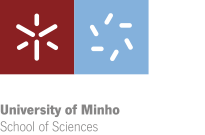Applications are accepted from:
• Holders of a degree in Biochemistry, Biology, Chemistry, Biotechnology, Genetics, Microbiology, Pharmacy, Medicine/ Biomedical and Health Sciences, Veterinary Medicine, Biological Engineering, Environmental Sciences (or related areas) or legal equivalent;
• Holders of a foreign higher education degree awarded after a first cycle of studies in Biochemistry, Biology, Pharmaceutical Sciences or related areas and organised in accordance with the principles of Bologna by a State adhering to this process;
• Holders of a foreign higher academic degree that is recognized by the Scientific Council of the School of Sciences as fulfilling the objectives of a Bachelor’s degree in Biochemistry, Biology, Pharmaceutical Sciences or related areas;
• Holders of a educational, scientific or professional curriculum that is recognized by the Scientific Council of the School of Sciences as attesting to the ability to carry out this master programme.


